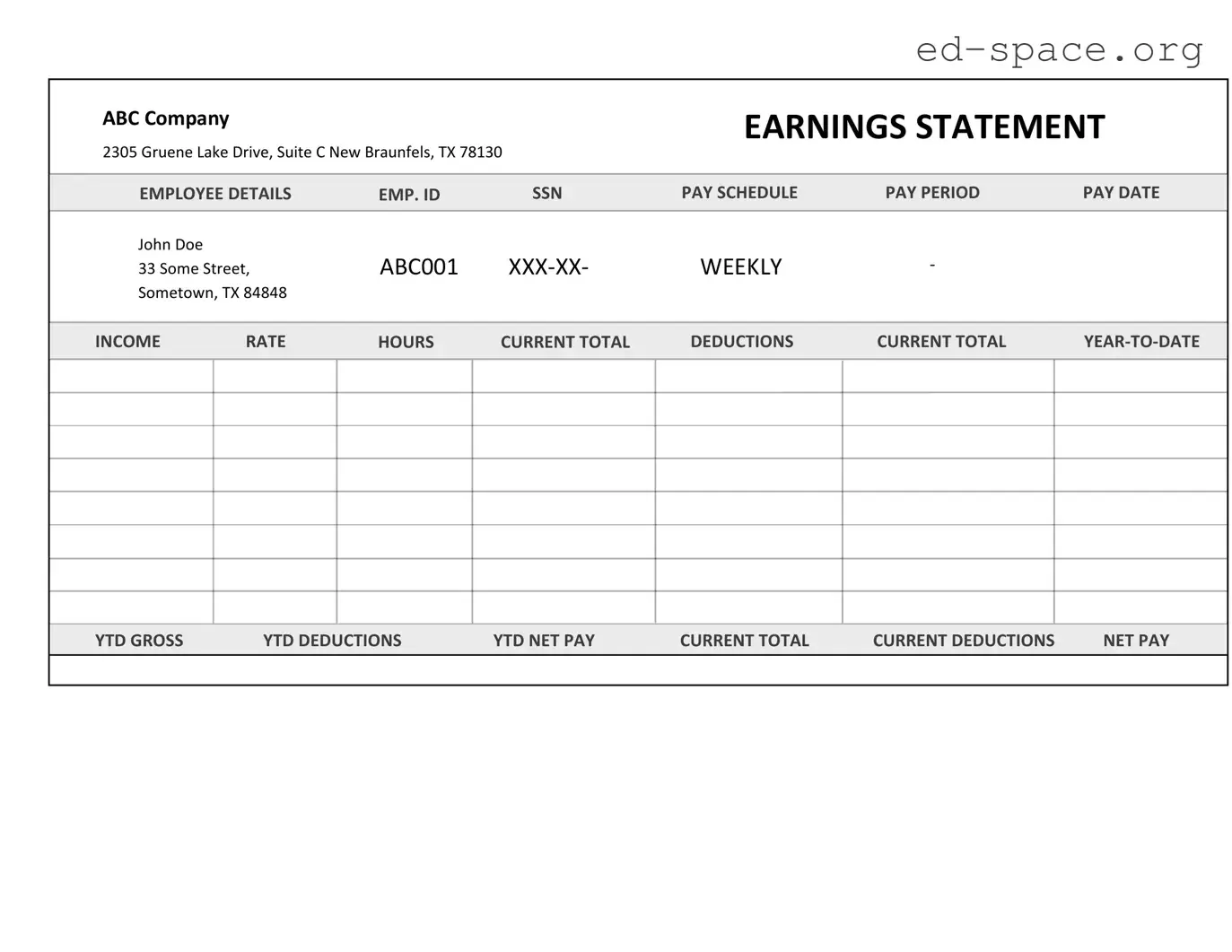What is an Independent Contractor Pay Stub?
An Independent Contractor Pay Stub is a document that provides detailed information about the earnings and deductions for an individual working as an independent contractor. Unlike traditional employees, independent contractors do not receive a standard paycheck or pay stub through an employer's payroll system. This form serves as a personal record of income for financial transactions, tax filings, and proof of income when required.
Why do I need an Independent Contractor Pay Stub?
Even though independent contractors are not given pay stubs by the companies they work for, having an Independent Contractor Pay Stub is essential for several reasons. It helps in keeping organized records for personal finances, making tax preparation easier, and serving as evidence of income. This is particularly important when applying for loans, housing, or any situation where proof of income is necessary.
How can I create an Independent Contractor Pay Stub?
Creating an Independent Contractor Pay Stub can be done using various online tools and templates designed for this purpose. These platforms often allow customization to include all relevant details such as the contractor's name, the period of work, the rate of pay, total hours worked, and any deductions or expenses. It's important to ensure all information is accurate and reflects the agreed-upon terms between the contractor and the client.
What information should be included on the Pay Stub?
An Independent Contractor Pay Stub should include the contractor's name, identification number (if applicable), the date range for the work performed, the total amount payable, rate per hour or per project, hours worked (if applicable), and any relevant deductions or expenses. Optionally, it could also list the client's name, a description of the services provided, and any additional income details.
Is there a legal requirement to provide Independent Contractors with a Pay Stub?
Typically, there is no legal obligation for clients or hiring entities to provide Independent Contractors with a Pay Stub as they would with regular employees. However, it is considered a best practice for contractors to create and maintain their pay stubs for their records. It is also advisable to review local and state laws, as requirements can vary based on jurisdiction.
Can deductions be made from an Independent Contractor's pay?
As independent contractors operate under a different set of regulations than regular employees, any deductions from their pay should be agreed upon in advance and outlined in the contract. Common deductions could include materials, supplies, or other business-related expenses directly tied to the service provided. Unlike employee paystubs, where taxes are automatically deducted, independent contractors are responsible for their tax obligations.
What if there are discrepancies in the Pay Stub?
If discrepancies appear on an Independent Contractor Pay Stub, it is crucial to address them promptly. First, review the contract and the agreed terms of payment to ensure understanding. If the discrepancy remains, reaching out to the client or hiring entity to rectify the error is advisable. Keeping detailed records of communications and agreements is essential for resolving such matters efficiently.

